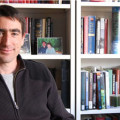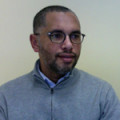
Walking around Buenos Aires, Argentina in the late 1990s, Michael Cohen made an interesting observation that much like in New York, where you lived determined how you lived. An exclusive part of town was clean, with reliable services, better schools and safer neighborhoods while most of the city lived in much less favorable conditions. His early investigation showed that the city spent a higher proportion of available public funds on the “good” side of town, while the majority of people were left to share a minority of municipal funds for all their services. The relationship between location and social welfare led him to surmise, in subsequent research, that five broad levels of welfare—“five different cities”—existed in Buenos Aires. This was a direct result of municipal fiscal policy.
Since that initial introduction to Municipal Finance Professor Michael Cohen founded the SGPIA program and continued to build on his notable career in urban policy development, and is regarded as an expert in the field. He has been involved in urban policy development and implementation for over forty years, including, amongst other distinctions, being largely responsible for the World Bank’s urban policy development from 1972 to 1999.
In October 2015, he was named to the United Nations Habitat Policy Unit on Municipal Finance – the fifth of ten Policy Units designed to advise UN member states ahead of the the UN Conference on Urban Development. Known as Habitat III, it is the third in a series of forums that convene every twenty years to discuss issues resulting from the rapid rise in global urbanization. The conference, which aims to address new and emerging challenges related to human settlement, and secure renewed political commitment to sustainable urban development across the globe, is being held in Quito, Ecuador.
As a living example of the pressing challenges facing urban centers, Quito is an appropriate location for the discussions to be held at Habitat III by Professor Cohen and his contemporaries. Quito is the second largest city in Ecuador and has experienced a six-fold increase in its urban population between 1950 and 1990.
In addition to his work with the United Nations Habitat Policy Unit, Professor Cohen has contributed expertise to numerous international discussions surrounding the challenges facing urban centers. His recent work includes:
- Publishing an analysis of the relationship between the recent UK referendum decision to leave the European Union (‘Brexit’) with the ‘New Urban Agenda’ to be discussed at Habitat III.
- Co-writing (with Milano PhD student Lena Simet) a chapter on the macro-economic consequences of global urbanization to a book entitled Urban Planet: Knowledge towards Livable Cities, which will be published for Habitat III.
- Speaking at The World Bank Annual Conference on Urban Poverty (February 2016)
- Publishing UN Habitat policy paper “Urban Economic Challenges and the New Urban Agenda (April 2016)
- Speaking at an international meeting on metropolitan governance in Guadalajara, Mexico (November 2015)
- Consulting for US State Department and the Prince of Wales Foundation on urban policy issues
Follow @newschool_IA on Twitter for more information on Professor Cohen’s contributions to Habitat III, which begins October 17, 2016.




